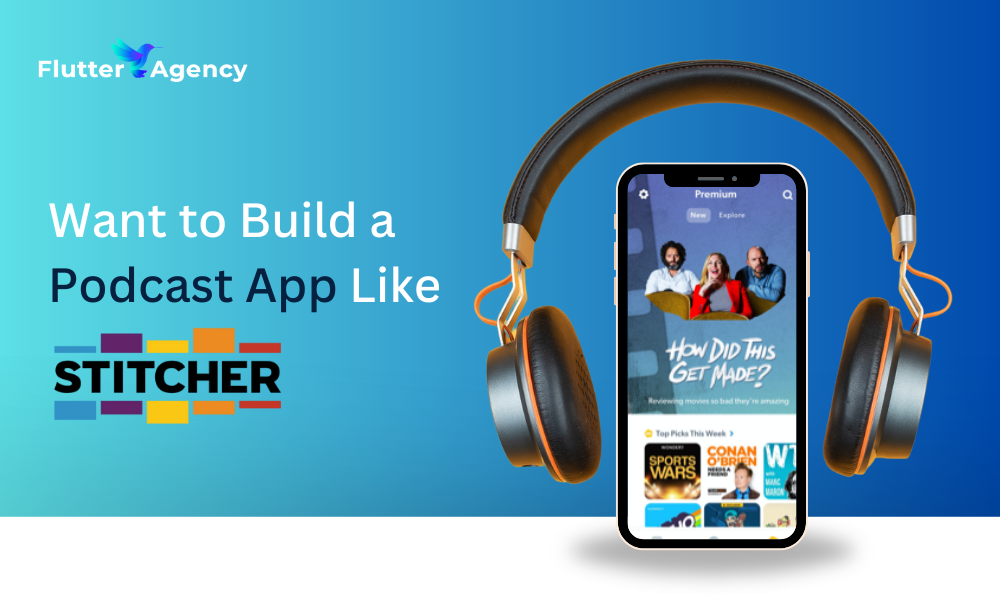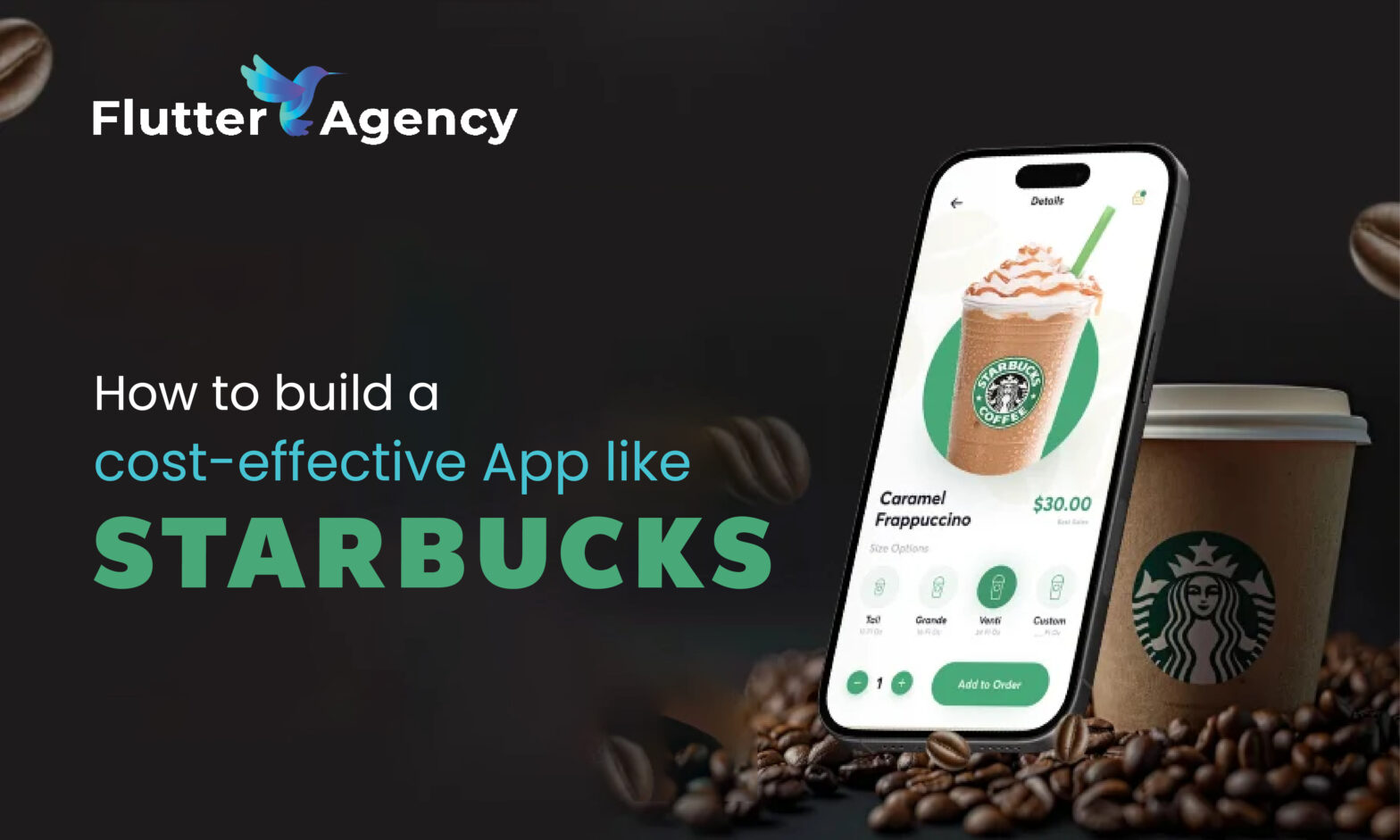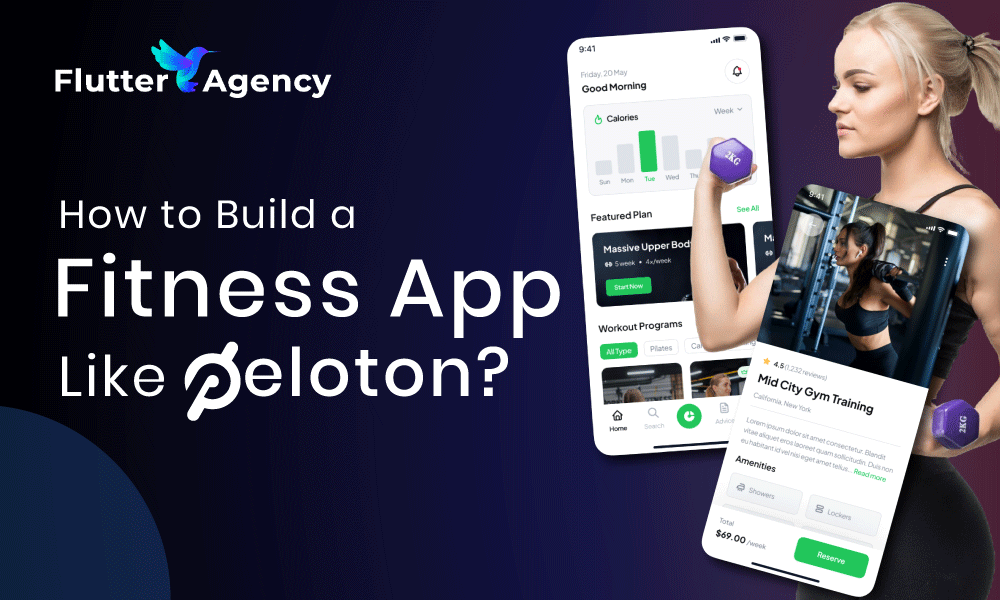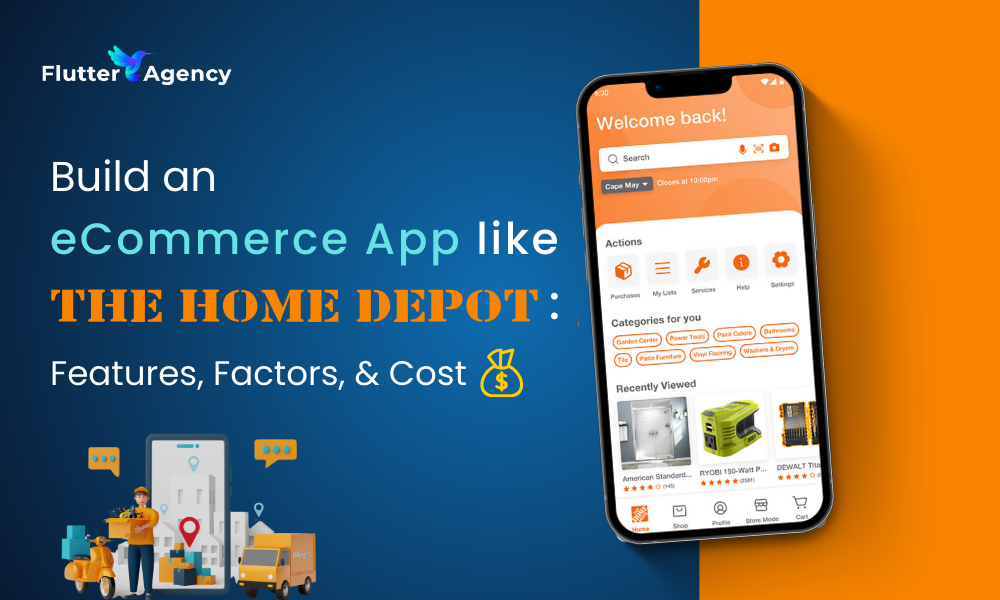A Complete Guide to Enterprise Mobile App Development Process
Nowadays, it has been seen that mobile app development has been growing for many years. This subcategory of software apps is the applications that run mainly on Mobile gadgets.
Mobile applications are being created for various operating systems like iOS and Android. Adding the built-in features of intelligent devices gives a great user experience compared to mobile web browsing.
It is estimated that 5 billion people all over the world have a smartphone and what they prefer to use is apps.
There are different types of apps with other categories, including gaming, music, entertainment, and more. I think all humans worldwide are familiar with top-rated apps like WhatsApp, Twitter, Instagram, and Facebook.
Designing the app for your business is a great decision. But before that, you need to know the mobile app development process, which is written in this blog.

About mobile app development
App Development is the method that is utilized to design software for tablets, mobile phones, and smart devices. This whole process consists of writing code that is needed for software creation and designing the app.
Development of app is the same as other software development that has web apps. The major difference between app development and traditional software development is that mobile apps have the capability to use native features on a device.
Likewise, apps can have mobile features such as GPS, Bluetooth, a Camera, and other features that are pre-built into the mobiles.
Apple and Android apps influence the global market share for the mobile application. It is possible to create the apps on other platforms, but most apps target these two markets. It is the best idea to consult a Flutter app development company who will deliver you the best output.
There are also other app development frameworks to select from, which we will cover in this article with a short overview.
Mobile app development procedure
The mobile app development mechanism is easy and simple when you divide it into certain steps. If you wish to create the apps, then follow the below formula:
1. Clarify the idea and strategy
Before starting any software development, you have to first clear your ideas. Some may have the basic idea or concept, while others might be beginning from scratch.
Here is the list of some questions which you would be asking yourself:
- What do you wish your mobile app to achieve?
- What are your app objectives?
- What issues will your app resolve for end-users?
- What functionalities will be added to your app?
- How much budget is for developing the app?
- How will you create the app? (In-house, remote, etc.)
It is necessary to stick into the app’s core features. Forget about unnecessary add-ons that change from the app’s primary function.
2. Market Research
After finalizing the idea, it is mandatory to look at a similar app that already exists. It is very rare to have an entirely new concept with no competition.
- Who is your challenger?
- What target audience are you aiming for?
- What is your differentiation strategy to stand out from the opponent?
- Which is the best platform to deploy your app?
- How will you promote your app?
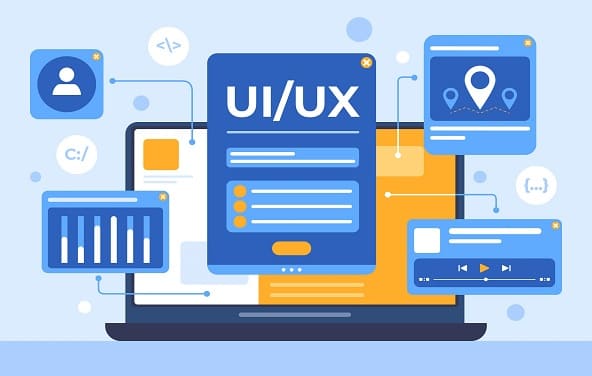
3. Build App UX design
A mobile app designing procedure is another essential part of the development. You can think about your app’s look and feel. Create the layout and wireframes to view how your app will function.
The major priority is to focus on the user experience. You intend to make sure that the user interface is smooth which is easy to navigate.
- Build a roadmap that demonstrates the connection between each screen.
- Assume the exception of how users will utilize your app compared to mobile websites.
- User experience must be your first priority.
You will wish to construct some prototypes of the application that is dependent on wireframes before you begin to create a fully-functional app.
4. Gathering app development requirements
It’s time to create an app that includes back-end technology, APIs, and front-end building. Let’s see what you are required to do:
- Select your method of development
- Gather your development team
- Hire a project manager
- Decide a timeline with milestones and objectives
- Be ready for the changes along the way
Depending on your method of development, you might require to create two different versions of the application- one for Android and another for iOS. Besides that, you can use cross-platform development tools for designing only one version of the app that will work on both operating systems.
This practice will look a bit different for everyone. There are some apps that can be created in a month with one developer. In contrast, others can take six months or a year with multiple programmers.
The category of the app and the complexity of its functionalities have a great effect on the timeline and budget of your app development. An easy app with the core features is fast and affordable to implement. In comparison, a complex app that has user authentication, real-time communication between users, and other similar features will take a longer time to integrate.
5. Testing
Before making your app live, make sure that it works properly in the correct way. App testing is done when you find bugs, glitches, or anything else which is needed to remove before it goes to the customers.
- Testing your app with the help of QAs throughout the development process is the best method.
- Examine the app on both platforms.
- Check the app on various devices (tablets, smartphones, etc.)
- Test your app with real users to get feedback and make improvements as per that.
The direction of the testing is to put out a functional app that works without crashing so that the users can enjoy its experience without any problem.
You can also do updates later in the app and release the new version later on.
Which are the foremost mobile app development platforms?
There are so many options that are present in the market for app development; you have to decide based on your budget, goal, and app type. There are some tools that don’t permit you to build the app, but with that, it is possible to test, optimize, debug and maintain the app. Let us see some platforms that are trending in the market today:
1. Flutter
Flutter is an open-source framework that supports you to build cross-platform apps with a single codebase. It was created by Google and launched in 2017, which is a new concept in comparison to the other options available in the market.
You can utilize the flutter for the development of mobile and web applications for iOS, Linux, Android, Windows, and more. It is a good option for those who desire to create desktop apps and web apps with one codebase that is written in C, C++, and Dart.
2. Adobe Phone Gap
With PhoneGap, the app is created with JavaScript, HTML5, and CSS3. It also has the plugin feature for adding functionality to the app. Apache Cordova is the necessary engine that boosts the PhoneGap.
Various types of mobile app
The development of the app has changed so much in comparison to the past. Previously, low-level coding was the option for native app development. If you wish to create an iOS app for the Apple App store and an Android app for Google Play Store, then you have to write different codes for both from scratch.
But the restriction for app development is removed up to a so much high level. App development tools, languages, and platforms are much implemented, and JavaScript is used for the cross-platform.
This has made it easier for e-commerce companies, existing businesses, and entrepreneurs who can deploy native apps from scratch.
Let’s take a look at the different types of apps and what is unique in their development:
1. Native mobile applications
Native apps are integrated directly into mobile phones. These are frequently implemented via Apple App Store or Google Play Store. Mostly, native apps work without any internet connection, and the existing functionality of the gadget is installed.
Designing the native app is writing the code, particularly for that operating system of the device.
2. Cross-Platform mobile applications
In the cross-platform, a similar code is used for all platforms. So, if you write the code once, then the app can be installed natively on both iOS and Android devices.
From the user’s point of view, it seems to be no difference between native and cross-platform native apps. But, from the development view, cross-platform native is affordable, and it reduces the development time
3. Hybrid mobile applications
Hybrid and cross-platform are often used alternatively, as they are not exactly the same. But, Similar to cross-platform, hybrid apps are written once and will function on both platforms.
Hybrid development is user-friendly in comparison to cross-platform development. Cross-platform app development is excessively technical and has the necessity for app development skills. Hybrid development is minor technical and can be achieved via basic web development knowledge or the without code app creators.
4. Progressive Web Application (PWA)
PWAs are the apps that are given via the web, as they are natively integrated on a user’s device.
Modern technology has made the PWAs look and feels very much similar to the native app experience. You are also able to send push notifications to the users, which are transformed through a web browser.
5. Cross-Platform or Progressive Web Application
Let’s see the benefits and drawbacks of cross-platform apps in comparison to PWAs. This will help you in finding which is best for your app, set in your budget, and achieve the goal with minimal charges.
5.1 Cross-Platform pros
- A Cross-platform native app is easy to maintain as you can sync updates with all platforms.
- It needs less time for development typically which converts into affordability, which means you can use that time on other parts of your app.
- You can easily reach the target audience, targeted smartphones, and tablets on various platforms.
5.2 Cross-Platform cons
- There are the issues in performance with operating systems, that define that you need to debug it again and again.
- Sometimes there is a security issues with the OS.
- You have to wait longer if you need to deploy new feature in the app.
5.3 Progressive Web Application Advantages
- PWAs are very low-cost to develop and maintain in comparison to native apps
- They are fast and simple to install on devices
- They have the power to do work anywhere due to cross-platform support
5.4 Progressive Web Application Disadvantages
- It is not accessible from an app store
- They provide very few functions that affect the user experience
- Functionality requiring Bluetooth or NFC is up to some range when it is working within the app.
Hybrid vs Native Apps
Now, compare the native and hybrid apps with its advantages and disadvantages.
Hybrid App Merits
- It has the same look and feels as a native app
- It is cost-effective to design and maintain
- You can create the application of hybrid via HTML, CSS, and JavaScript
- These apps give a faster development process
Hybrid App Demerits
- Not good performance on older devices
- Didn’t work for a certain type of apps
- Functionality is limited with hybrid development
Native App Benefits
- All the functionalities on multiple smart devices are possible
- They are created with an Integrated Development Environment (IDEs) similar to React Native
- This app is still running smoothly on older devices
Native App Drawbacks
- They are so much costly to develop
- It is time-consuming to create, and you require to construct separately for iOS and Android
- Development tools are not user-friendly
- They create bugs easily and need updates frequently
Conclusion
There is a lot of information you want to do with mobile app development. While creating native apps or cross-platform apps, you require to give priority to user experience.
The app functionality is necessary to meet the primary use case, and the attractive features should be there which are easy to navigate. There is a number of platforms you can select for app development. But, the option is totally dependent on your app budget, goals, timeline, and complexity of your app.
Are you excited to know more? Then communicate with our Flutter app developers who will try to assist in every manner.
Frequently Asked Questions (FAQs)
1. On which platforms do you develop the apps?
At Flutter Agency, we deliver cross-platform application development, which runs on iOS and Android.
2. What are the phases involved in the mobile app development process?
There are mainly three stages which are in the mobile app development process. The first stage is the planning in which we understand your business and its objective behind implementing the mobile app and will create a wireframe. Another stage is design and development, where we will build the structures, character models, and sound effects and will do testing and clear all bugs and errors in the app if it is there.
The last and most crucial stage of the app development is to launch the app, which is followed by the marketing of the application.
3. How many types of apps do you develop?
We create various apps like business utilities, finance, social networking, entertainment, education, and children’s apps.
4. Do you only construct native apps?
No, our developers are skilled in cross-platform application development. We will first hear your project needs and then suggest which platform benefits your app development process.
5. Do you provide maintenance services?
Flutter mobile application development company is known for providing full-cycle solutions. From conceptualization to post-scale support and maintenance, we will remain connected with you at every stage and verify that your app is error-free and remains the same in the future.
6. If I want to strengthen my existing app, can I get it?
Yeah! You can partner with us to develop the app right from scratch, or you can increase its functionality. You can access our mobile app development services individually or entirely. We ensure you deliver high-quality apps with migration services in any of these cases.
7. How can I know about the progress of my project?
Each of our mobile app development projects is assigned an experienced project manager. He will stay connected with our clients whichever the mode is preferred by them and due to this it is easy for them to communicate and know about the movements of their project.
8. Will you support me in marketing and launching my app?
Yes, Of Course! We have professionals who have years of experience in the marketing and submission process, and they will assist you in every manner throughout the entire procedure. We make the usage of official and unofficial app stores, direct advertisement through social networking sites, analytical tools, and some other methods to promote your app.
9. How do I start my project with you?
It’s effortless. You can contact us anytime for the development of a project.
Get a Free Consultation Now
Contemporary ventures
Recent blog
ready to get started?
Fill out the form below and we will be in touch soon!
"*" indicates required fields






